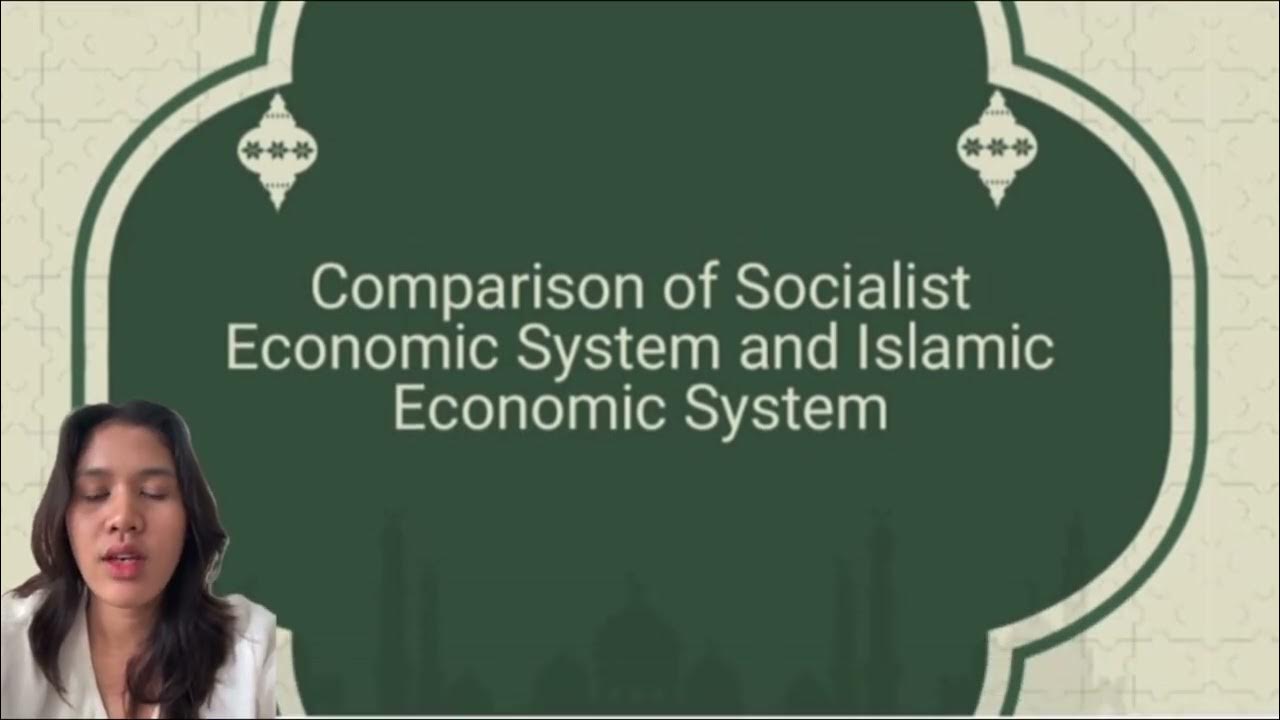KEMISKINAN DAN KETIMPANGAN DALAM PERSPEKTIF ISLAM | KELOMPOK 1 | UAS EKONOMI SYARIAH 2022
Summary
TLDRThis video explores poverty and inequality from an Islamic economic perspective, discussing their causes, implications, and solutions. It highlights factors contributing to poverty, such as lack of employment, education, and resources, as well as inequality across various dimensions. The role of Islamic principles, including zakat, in alleviating poverty is emphasized, alongside strategies like improving access to opportunities, work ethics, and optimizing charity. The discussion underscores the importance of addressing both material and spiritual aspects in tackling economic challenges in developing countries.
Takeaways
- 😀 Poverty and inequality are discussed from the perspective of Islamic development economics.
- 😀 Poverty is defined as the result of economic inequality, while inequality is seen as a condition of injustice between groups with differing access to resources and opportunities.
- 😀 Imam Al-Syatibi's perspective on the role of Sharia in poverty alleviation emphasizes three categories of needs: essential, developmental, and perfection needs.
- 😀 The application of Sharia principles such as Giswaq can stimulate aggregate demand, production, investment, and economic growth, thereby reducing poverty.
- 😀 Four main causes of poverty are identified: individual characteristics, inherited factors, cultural behaviors, and imbalanced socio-economic policies.
- 😀 Key factors leading to poverty include unemployment, low product prices, high education costs, and lack of access to resources like credit and transportation.
- 😀 Economic inequality is caused by factors such as unequal job opportunities, wealth concentration, and economic shocks.
- 😀 Social inequality exists due to both internal factors (individual behaviors) and external factors (systemic imbalances and policies).
- 😀 The World Bank recommends four strategies for reducing inequality in Indonesia: improving public services, creating better job opportunities, ensuring economic protection, and using taxes and budgets effectively.
- 😀 Islamic solutions to poverty and inequality include encouraging hard work, prohibiting interest (riba) and unjust actions, and utilizing Zakat, Infaq, and Sadaqah for economic support.
- 😀 Islam promotes strategies to reduce economic disparities, such as increasing access to economic opportunities, improving work ethics, fostering solidarity, optimizing Zakat distribution, and taxing idle assets.
- 😀 Both poverty and inequality are intertwined challenges for developing countries, and addressing them requires a comprehensive, spiritual, and material approach, as outlined by Islamic economic principles.
Q & A
What is the Islamic perspective on poverty and inequality?
-In Islam, poverty and inequality are viewed not just as material issues but also as spiritual challenges. Islamic economic principles focus on achieving justice, equity, and fulfilling basic human needs through ethical means such as Zakat, Infaq, and Sadaqah.
How does Islam define poverty?
-Poverty in Islam is seen as a result of economic disparities where individuals or groups do not have access to essential resources. It is closely linked to economic inequality and is addressed through public welfare mechanisms and redistribution of wealth.
What are the key factors causing poverty and inequality in society?
-The causes of poverty and inequality are categorized into four key factors: individual characteristics, hereditary factors, cultural influences, and structural factors such as economic policies that create unequal opportunities and resources.
What are the five types of inequality discussed in the script?
-The five types of inequality mentioned are: individual inequality, territorial inequality, gender inequality, financial inequality, and digital inequality.
How does the concept of Maṣlaḥah (public welfare) contribute to poverty alleviation in Islam?
-Maṣlaḥah, or public welfare, aims to fulfill basic human needs and improve living standards. This concept underpins the Islamic approach to poverty alleviation, ensuring that the community's well-being is prioritized through financial instruments like Zakat and social policies.
What role does Zakat play in reducing poverty and inequality?
-Zakat is a mandatory form of almsgiving in Islam, which redistributes wealth from the rich to the poor. It is an essential tool for reducing poverty and inequality by directly addressing the economic needs of the underprivileged and fostering social solidarity.
What are the causes of economic inequality in the conventional perspective?
-From a conventional perspective, the causes of economic inequality include disparities in opportunities, uneven job distribution, concentration of wealth in a few hands, and low economic resilience in vulnerable communities.
What recommendations did the World Bank make to address inequality in Indonesia?
-The World Bank recommends four main strategies: improving public services, creating better job opportunities, enhancing social protection against economic shocks, and using tax and government spending policies to reduce inequality.
How does Islam propose to increase access to economic opportunities for all?
-Islam emphasizes the importance of providing equal access to economic opportunities by promoting education, fair labor practices, and the creation of inclusive economic policies. It also encourages charity and support from the community to uplift the less fortunate.
What is the significance of increasing the work ethic and communal bonds in reducing inequality in Islam?
-Islam stresses the importance of a strong work ethic and personal responsibility, urging individuals to contribute to the economy. Additionally, fostering strong communal bonds (ukhuwah Islamiyyah) ensures that people help one another, especially those in need, creating a more equitable society.
Outlines

このセクションは有料ユーザー限定です。 アクセスするには、アップグレードをお願いします。
今すぐアップグレードMindmap

このセクションは有料ユーザー限定です。 アクセスするには、アップグレードをお願いします。
今すぐアップグレードKeywords

このセクションは有料ユーザー限定です。 アクセスするには、アップグレードをお願いします。
今すぐアップグレードHighlights

このセクションは有料ユーザー限定です。 アクセスするには、アップグレードをお願いします。
今すぐアップグレードTranscripts

このセクションは有料ユーザー限定です。 アクセスするには、アップグレードをお願いします。
今すぐアップグレード関連動画をさらに表示

Kemiskinan dan Kesenjangan Pendapatan - Kelompok 4 ES 4B - Perekonomian Indonesia

World-Systems Theory, Dependency Theory and Global Inequality

Kemiskinan sebagai Masalah Sosial

Permasalahan Sosial dalam Masyarakat - Materi Sosiologi Kelas XI

Perubahan Lingkungan | Biologi Kelas 10

Difference between islamic economic system and sosialist economic system
5.0 / 5 (0 votes)
